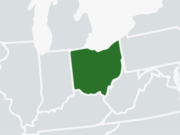Washington, DC — The Institute for Free Speech enthusiastically commends New Jersey lawmakers and Governor Phil Murphy for this week’s enactment of a new anti-SLAPP law that provides strong protections for the exercise of political speech rights.
With the new law, New Jersey joins 32 other states and the District of Columbia as jurisdictions with anti-SLAPP laws. According to the Institute, for the first time ever, a majority of the nation’s population is now covered by relatively strong anti-SLAPP laws, meaning with grades of “B” or better in the organization’s 50-state Anti-SLAPP Report Card. Nearly 80% of the U.S. population now lives in jurisdictions with anti-SLAPP laws.
“SLAPP” stands for “strategic lawsuit against public participation.” As the name suggests, these lawsuits’ purpose is to silence speakers for exercising political speech rights, usually by using a meritless claim of defamation. If left unchecked, SLAPP lawsuits allow powerful plaintiffs to weaponize costly litigation to punish people for speaking.
That’s why the Institute celebrates the recent passage of S2802, also known as the Uniform Public Expression Protection Act (UPEPA). The bill had bipartisan sponsorship and passed unanimously in both the Assembly and the Senate before being signed into law this week by Governor Murphy.
“Anti-SLAPP laws receive support across the political spectrum and generate strong bipartisan backing because they safeguard everyone’s right to free speech,” said Institute for Free Speech President David Keating. “The people of New Jersey should take pride in the fact that their elected leaders united to take this important step to protect free expression.”
These laws prevent abuse of the legal system by providing defenses to SLAPP lawsuits. Without such protections, the costs and inconvenience created by SLAPP lawsuits can be disastrous. Even worse, the mere threat of SLAPP lawsuits can “chill” speech, discouraging individuals from speaking in the first place.
UPEPA is particularly beneficial to speakers because it closely tracks the language recommended by the Uniform Law Commission. This language ensures that key protections exist within the law. Namely, UPEPA protects all expression on matters of public concern, minimizes litigation costs for defendants, requires plaintiffs to show they have a legitimate case early in the proceedings, provides defendants a right to an immediate appeal if their anti-SLAPP motion is denied, awards costs and attorney fees to a winning defendant, and instructs judges to interpret the law’s protections broadly to protect speech.
Last year, a robust, ideologically diverse coalition of 28 organizations, of which the Institute was an organizing member, published an open letter in support of the Uniform Law Commission’s model UPEPA. Signers included groups such as the ACLU, National Right to Life, International Association of Better Business Bureaus, Motion Picture Association, and the News Media Alliance.
Previously, New Jersey received an “F” in the Institute’s 50-state Anti-SLAPP Report Card for not having an anti-SLAPP law. The passage of UPEPA addresses this problem, as it significantly strengthens speech rights within the state.
About the Institute for Free Speech
The Institute for Free Speech promotes and defends the political speech rights to freely speak, assemble, publish, and petition the government guaranteed by the First Amendment.













